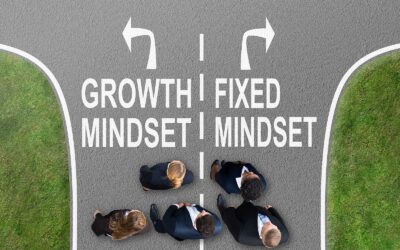We know that diversity, equity and inclusion needs span a vast range: executive coaching for your DEI leaders and DEI allies, coaching others on sensitive topics including DEI issues, and even training for your wider population on how your company approaches diversity, equity and inclusion. We have you covered on all those fronts, and crucially, we have a variety of DEI coaches who can deeply understand the needs and challenges of your employees around these issues.
Our diverse and expert coaches can support the leaders who are grappling with their own experience or those of other DEI employees, provide training in DEI issues for allies and others, or integrate topics of diversity and inclusion into the coaching of employees for whom this is a new conversation.
Challenging coaching calls for those with the compassion and expertise to handle to conversation.

Coaching for DEI Leaders and Allies
Expert, Certified, Diverse Coaches

We coach in the Diversity, Equity and Inclusion Space:
Senior leaders
DEI allies
Group programs that include DEI topics
Workshops on Equity and Inclusion
Keynotes on Ally-ship
Certified, experienced, diverse coaches
Our DEI Coaching Philosophy: Insight + Action = Results
Coach Selection Process
In order to deliver the most value to our clients and their companies, we believe that it’s critical that an executive chooses a coach whose style matches their personality—that’s why we encourage our clients to interview up to three of our coaches to guarantee the best fit.
Diverse, Experienced Coaches
Real Results
Convenience and Flexibility
The Arden Difference
The Power of the Arden Process

Selection
First things first: we set up an initial conversation to help determine the appropriate program for the executive, as well as set up interviews with the three coaches that are the best fit for their needs and goals. In this stage, we are looking to match the executive’s style with that of the coach to create a coaching relationship that delivers maximum results.

Alignment
At the start of each engagement, the coach, the executive, and their supervisor meet to determine the goals of the coaching. Because all of our executive coaching programs are results-driven, it’s critical to set appropriate goals and ensure that the executive, the supervisor, and the company can all realize the benefits of the coaching.

Assessment
When an executive enrolls in a program with the intent to change, measuring the ability and skill level at the outset is a critical first step in setting goals and building a plan to reach them. The coach will select from an array of assessments to select the tools best suited to help the executive gain insight into their unique style and potential areas for growth.

Work the Plan
With feedback from colleagues and a personalized development plan in place, the executive and the coach work through the strategy. They meet regularly to discuss challenges, best practices, and successes, with the coach helping the executive identify and understand their patterns, as well as focus on opportunities for improvement. At the midpoint of the partnership, we once again assess the executive’s progress through a meeting with their supervisor and course-correct, if needed. At the conclusion of the engagement, the executive, supervisor, and coach review the progress and identify any next steps necessary to continue the executive’s growth to ensure a long-term shift in behavior.
Executive Coaching and Leadership Blogs
How to Determine the Time for Innovation
by Karen Delk, MSc., PCC For many leaders in the corporate world, identifying the strategy and determining the resources needed for successful implementation is a process. Encountering challenges...
The Evolution of Leadership: What Today’s CEOs Need to Know
Not long ago, a CEO’s effectiveness was measured by their ability to achieve robust financial performance and maximize shareholder value. It’s not so simple anymore. The modern CEO operates in an...
What Storyworth Told me About Leadership
by Linda Bodnar, Ph.D., PCC In my blog last year, I mentioned that so often it is “reframing” or “mindset shifts” that allow us to reach the growth we want to achieve in our leadership development. ...
How Do You Lead Remotely?
by Eva Szekeres, MA, PCC One of the most frequent challenges my clients bring to our executive coaching sessions recently is navigating the hybrid workplace. It reminded me of the metaphor of a...
What Not To Do When Handling Conflicts in a Professional Setting
At the executive level, conflicts carry complexities that ripple through entire organizations. This article offers a deep dive into the art of handling conflict for leaders, focusing on how not to...
7 Priorities of Senior Leadership
by Sharon Krohn, MCC As executive coaches, we partner with our clients as they navigate the myriad strategic and people challenges in today's fast-paced and ever-changing business landscape. The...
LET’S GET STRATEGIC! De-Mystifying the S Word in Leadership
By Nora Infante, Psy.D. Every rising executive at some point or another will encounter the mandate to develop their strategic thinking skills in order to grow and elevate their leadership...
The Anatomy of an Effective Team
"Talent wins games, but teamwork and intelligence win championships." – Michael Jordan This quote sums up a fundamental truth in both sports and the corporate world. As an executive, you’ve amassed...
The Power of ‘No’ for Executives: Mastering Energy and Attention for Sustained High Performance
by Elisa Canova, MBA "The difference between successful people and really successful people is that really successful people say no to almost everything." – Warren Buffett The ability to say “no” is...









